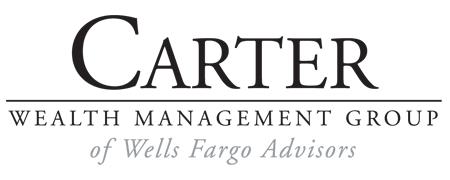
4 minute read
PRIORITIZING
best client s are one
Families whose economic health was already being weakened by poor financial literacy face greater obstacles during the COVID-19 pandemic and subsequent recession.
Advertisement
Levels of financial literary are “alarmingly low,” according to a survey conducted by the FINRA Investor Education Foundation and the Global Financial Literacy Excellence Center. Only 44 percent of active investors correctly answered the groups’ questions about basic financial concepts, while Americans who only invested through their workplace scored significantly lower.
“Research shows that financial literacy matters,” the groups stated. “Investors with low levels of financial knowledge are more likely to exhibit poor investing behavior: diversifying naively, failing to identify dominated funds, and paying higher fees. Such behaviors can become costly for investors and be an impediment to financial security.”
At Carter Wealth Management Group of Wells Fargo Advisors, educating clients and improving financial literacy are a top priority, according to Kenneth W. Carter, CIMA ® , Managing Director - Investments at the New City, New York, firm. He said education is a critical component of each client conversation.
“The best clients are the ones who are educated,” Carter said. “And we really pride ourselves on educating clients. There are so many situations where we can be a good teacher. The more informed clients are, the more successful they are as investors and at reaching their financial health goals.”
The industry is filled with numerous products, terminology, and language that are too complicated for most people to understand, Carter continued. Simplifying the process of investment planning to its most basic terms has helped his clients become better investors.
“Our industry is notorious for using acronyms and difficult terms. We never use industry jargon with clients. We always bring it down to precisely what they can understand.”

Top L/R - Steven L. Mattson, Patrick Harding, Bottom L/R - Emily Ruggeri, Kenneth W. Carter CIMA ® , Luciano "Lou" Dela Cruz
Investment planning is an individualized process tailored to specific needs, Carter said. Advisors must dig deeply into details of the client’s assets, goals, and comfort levels so they can create a customized solution. Discovering that full financial picture helps build beneficial and long-term advisor-client relationships.
The firm’s engagement with new clients begins with an in-depth conversation about their specific goals. Once those goals are established and an investment plan is created, Carter said, advisors make sure the client fully understands the plan. This includes how they will achieve their financial objectives; what specific tools and investment will be used; and how those investments work.
After the plan is finalized, Carter Wealth Management follows up at least once every 90 days to keep clients updated on financial fitness information. Client meetings and phone calls always include additional coaching and educational opportunities.
Since the 2020 health and economic crisis began, Carter added, those client calls have become more frequent.
Retirement planning is a major component in those plans. Carter said clients need a written document that maps out a multi-decade investment plan covering a wide range of possibilities. For example, he said, seven out of 10 Americans turning 85 will need long-term care at some point in their life. The longer people live, the more likely they are to have a disability.
“Wealth management is much more than simply managing investments,” he explained. “It also covers how to keep more money in your family for generations to come. This also includes recommending solutions that involve a steady, predictable stream of income throughout retirement. But again, it starts with a written document that maps all this out – for the client’s life and, even beyond that, for the children.”
Large institutional investors that oversee large pools of asset always have written plans and statements in place that detail their investment policies, Carter noted.
He added, “It always amazes me how many individual investors don’t spend time on this – on having a written document that shows where you are going.”
Making sure his clients stay on track with those plans has been a particular focus at Carter Wealth Management during the pandemic. Carter said the firm has taken the same approach of frequent communications that worked during similar market events, such as the technology bubble of the late 1990s, Y2K, the September 11, 2001 terrorist attacks, and the Great Recession of 2008-2009.
“Proactively reaching out to clients – explaining the markets and their impact to their plan in an easy-to understand methodology – is the single best way to help clients reach important financial objectives,” he said. “Clients know I am here with their interests and goals in mind, and that I will guide them through rough waters to help them reach their destination.”
Beyond the economic implications, Carter said, the dramatic impact of the corona-virus on countries and people around the world has been unprecedented in our lifetime. His firm continues reaching out to its clients to explain what is happening, what to expect going forward, and how they will still be able to reach their important goals.
“Many advisors are sticking their head in the sand until this goes away,” he said. “But these are the times when we earn our keep.”
For more information on Carter Wealth Management Group, visit carterwmg.com











